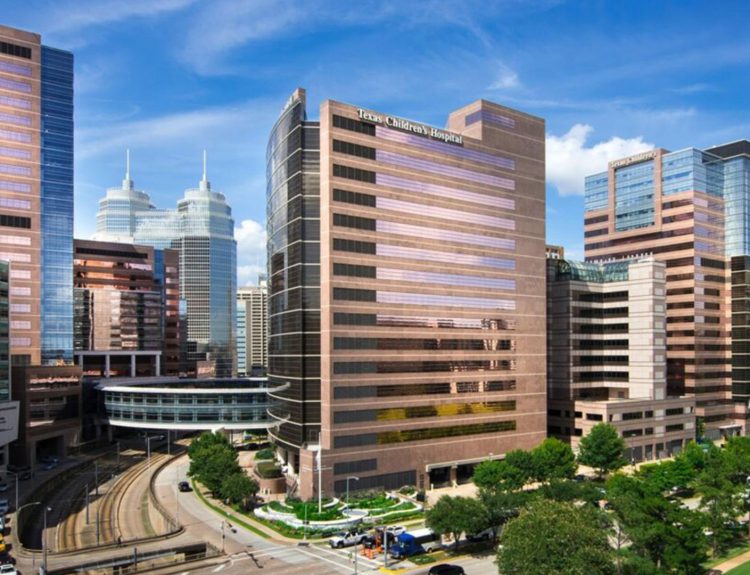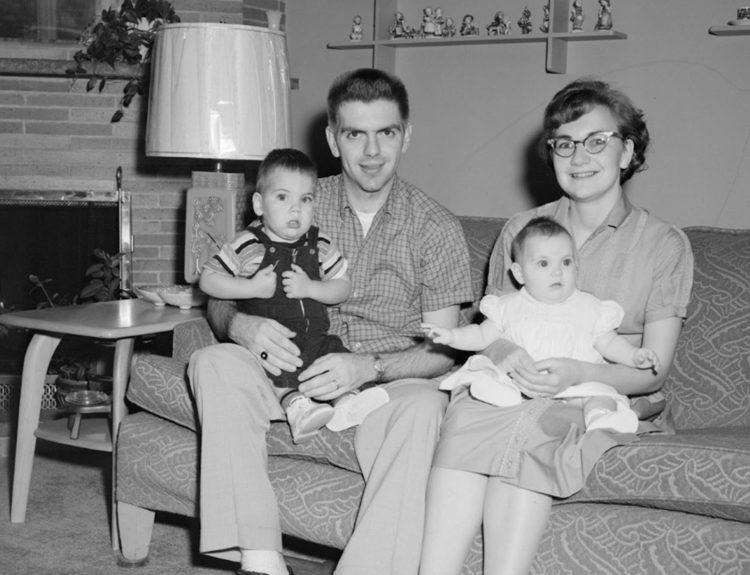“Money can’t buy happiness.” While this is a common adage, it’s difficult to say something so simplistic when so much of our modern lives are linked to income and what we can afford. The soaring costs of rent, groceries, and gas have made even the most comfortable of households tighten their belts, and a new survey from millennials reveal their true feelings about income.
Income is Challenging
Yearly income and wages are a tricky conversation to have, no matter what tax bracket you fall in. Income inequality has significantly grown in America over the last few decades, a reality that has led younger generations – namely Millennials and Gen Z – to be entirely disillusioned both with capitalism and the idea of work.

It isn’t necessarily that these younger generations don’t want to work, as many in the mainstream media like to claim. While it’s a punchy talking point to say that young people are ruining this industry or that with their “laziness,” the reality is that younger people simply want to be able to pay their bills without having to work multiple jobs to do so.
Surveys on Surveys
There is also a stark difference between generations, as far as what they consider to be necessary to live. Last year, a survey done by Empower – a financial services company – asked a series of questions regarding financial health and happiness.

The question of whether money truly affects happiness is something that psychologists and financial experts have been pondering for years. Different studies have come out with conflicting opinions, and the most recent Empower survey is only the newest in the slate of information.
Different Data
In 2010, a Gallup poll was done on money and happiness that made headlines and caused quite a bit of buzz. It revealed that money did seem to have a measurable effect on an individual’s happiness, but only up to a salary of approximately $75,000 ($90,000 today, accounting for inflation).

A different survey was completed in 2021 that revealed the opposite. The new study revealed that even at salaries above $90k a year, experience of happiness increased dramatically with more money, up to a plateau of approximately $500k a year. This suggests that even for high-income earners, the pinnacle of happiness has yet to be reached in wealthy countries.
Thoughts are Reality
So what is the reality? Well, the word is still out on that. But the question of how much people think they need to earn in order to be happy or content, that’s a different matter. Given the different opinions across generations, this is an interesting question to ponder.

The survey done by Empower asks exactly that. It questioned over 2000 participants online, ages 18 and older, gathering data about exactly what level of financial wellbeing different people needed in order to achieve “happiness.”
Yes, Money Can Buy Happiness
On a surface level, the results of the survey were less than surprising. The data revealed that nearly 6 in 10 Americans answered a firm “yes” to the question of whether money could buy happiness, and the first word that people thought of when it came to money was “freedom.”

This is unsurprising in a country where many of the younger generation see capitalism and the culture surrounding it as having gone off the deep end. Conversations around “late stage capitalism” largely center around the wealth disparity between the lower class and upper class.
It’s Unsurprising, Really
In a country where many people are living along the poverty line or “house poor” due to the high costs of renting or owning a home, it’s unsurprising that many would see more money as the key to freedom.

More money, for many Millennials and Gen Z-ers, would mean a greater ability to enjoy their lives. To take vacations, to spend time with their friends, to have disposable income rather than simply spending all of their money to pay the bills.
Millennials Are Especially Opinionated
In this way, the results of the Empower survey are less than surprising. Millennials, in particular, have strong opinions about the amount of financial wealth required to be happy. The average respondent claimed that they would need $1.2 million in the bank to be happy, but Millennials went even further than that.

When asked about average salary, the average number that respondents claimed would result in happiness was $284,167. When broken down into generations, though, Millennials had the highest expectations, stating that it would require a salary of $525,000 a year to be truly happy.
Ten Times the Salary
This is a drastic increase from the average yearly salary of Americans, which hovers around $60,000 a year. And while it may seem that Millennials are financially delusional, to consider half a million dollars the base level of happiness, the true results of the survey are a little more nuanced than that.

A significant majority of Americans – approximately 70% – believed that more money would increase their happiness. But rather than asking for a ten times increase in salary, most Americans stated that even a modest gain of $15,000 a year would significantly increase their happiness and sense of financial wellbeing, for up to six months.
What Makes Happiness?
The data goes even more in depth. The survey reveals that for many Americans, a “Return to Happiness” quotient goes beyond some far-off goal of unattainable net worth or an outrageous salary. It’s more granular than that.

For many Americans, being happy would involve being able to pay bills on time (67% of respondents), living debt-free (65% of respondents), and being able to buy a home (45% of respondents). This is in response to the question that revealed that a whopping 73% of Americans were experiencing financial stress in some way, shape, or form.
The Economy, As Always, Factors
This can be attributed to the current economic climate. Millennials in particular have been heavily burdened in the current economy, holding high balances of student loans and credit card debt.

Inflation and high interest rates have been weighing down on Americans as well, with the majority of Americans claiming various economic factors as the most significant factor when it comes to their happiness and mental health.
Net Worth is Only One Part of It
And though the headline of “Millennials need $525k to live” is punchy, the results of the survey reveal numbers that are a little bit more complicated than that. For Americans, small minority – 17% – of respondents stated that reaching a certain net worth was the key to happiness.

That’s not to say that financial security and net worth is insignificant. Three quarters (75%) of survey respondents reported that they were currently experiencing financial stress, and more than a third (36%) stated that they had lost sleep over money. This is a significant statistic, in the wealthiest country in the world.
Work-Life Balance Ranked High
More than the number in the bank account, though, the survey reveals the other part of happiness. For many Americans, having a proper work-life balance was stated as being one of the most significant factors as far as happiness in their employment.

The generational divide was the most stark with this particular question. Gen Z-ers believed in this concept the most strongly (79% of respondents), while just 63% of Boomer’s answered the same. This is a difference that can be casually seen in conversation both in person and on the internet, but the data cements the generational divide.
Work Culture, Too
Work culture also played an important factor in the survey. A quarter of participants revealed that they had switched jobs in the last year, with a significant portion of participants expressing that the rise of Artificial Intelligence made them concerned for their job security.

In searching for a job, several factors came through as important for job seekers in the current market. 87% of participants stated that salary and bonuses were a factor, 88% claimed healthcare, and 83% sought a reasonable 401k match.
When Will You Retire?
The final nail in the coffin for Americans happiness, though, is the expected age of retirement. For years, the formal retirement age for Americans has been listed at 65 years old, but some politicians have recently been proposing raising the age of retirement to up to 72 years old.

The Empower survey reveals that average Americans are feeling the squeeze. With the high cost of inflation and interest rates, the age that the average American believes they will be able to retire has risen, up to three years depending on the level of financial stability.
A Stark Generational Divide
Again, the generational divide between the youngest workers and the eldest is clear. This time, though, Boomers are the ones with the lowest expectations for their working careers. For Boomers without a detailed financial plan, the expected retirement age was 71 years old.

This is in stark contrast with Gen Z, whose expected age of retirement was only 54 years old. This attitude doesn’t reflect in the economy, policy, or reality, but it is an interesting example of the different mindsets and attitudes towards work that the different generations have.
Financial Outlook is Bleak
The results of the survey make it clear that the financial outlook is bleak in America, across generations. Recent economic data gives hope that some relief might be on the horizon, though.

Inflation in the United States has continued to steadily come down, month after month in the wake of the pandemic. The consumer price index only increased 3.2% year over year in October, down from 3.7% the month before. Additionally, the Fed has paused their exorbitant rate hikes in the wake of dropping inflation, and it appears that some relief may be on the horizon regarding that as well.
But the Horizon is Bright
While it is true that many Americans are feeling the financial squeeze of the current economic environment, it is equally true that America offers more opportunities than many other countries. Americans can quit their jobs to seek a better one, or start their own business with relatively little hassle.

With the opportunities available to Americans, the exorbitant numbers that many believe are necessary for financial happiness could very well be within reach. All it takes is some belief and hard work, and the world could be for the taking.






